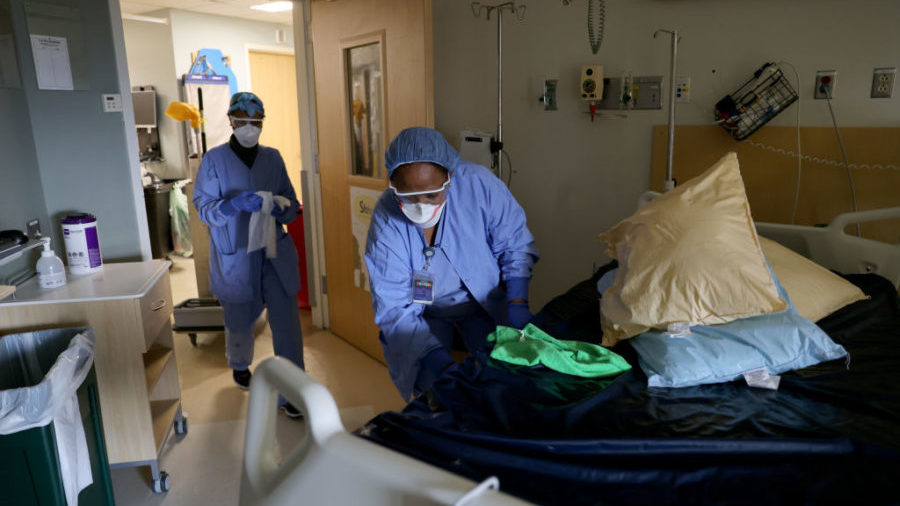Hospitalizations plateauing in Western WA, peaking in Eastern WA
Jan 26, 2022, 5:36 AM

Environmental Services workers deep clean a non-Covid room with disinfectant in the acute care unit at the Harborview Medical Center on Jan. 21, 2022, in Seattle, Washington. (Photo by Karen Ducey/Getty Images)
(Photo by Karen Ducey/Getty Images)
After weeks of the omicron surge ravaging local hospitals, hospitalizations in Western Washington are finally starting to slow down.
Taya Briley, executive vice president of the Washington State Hospital Association, said during WSHA’s on Tuesday that certain parts of the Puget Sound region actually appear to be starting the descent.
“In some areas of Western Washington — such as King, Pierce, and Snohomish counties — the trends of hospitalizations are even going down a bit,” Briley said.
Legislature debates WA hospital staffing ratios as labor shortage problem steeps
Dr. Charleen Tachibana, chief quality, safety and patient experience officer with Virginia Mason Franciscan Health, said during the briefing that they hit their omicron hospitalizations peak last week.
“We were so cautiously optimistic when we saw things plateau over the weekend,” she said. “And then the Monday numbers looked like they were beginning oh-so-slightly to move down.”
But Eastern Washington is a different story. The omicron peak there is a week or two behind Western Washington, and as a result, hospitalizations are still rising in that part of the state.
Briley said hospitalizations in Chelan and Yakima counties have each gone up more than 30% in the past week; Spokane County’s hospitalizations have doubled in two weeks.
This is likely to affect areas west of the mountains, too.
“There is not as much critical and high-acuity care available for very sick patients in Eastern Washington, so Western Washington typically absorbs overflow from Eastern Washington,” Briley said.
And with parts of southern and central Idaho now in crisis standards of care, Eastern Washington is also expected to shoulder some of that burden.
Jeannie Eylar, chief nursing officer at Pullman Regional Hospital, said they expect to get transfers from hospitals just across the border in Moscow and Lewiston, Idaho.
“We’re trying to be really good stewards. … We also feel like we are in community with these other folks who are just under 30 miles away,” she said.














